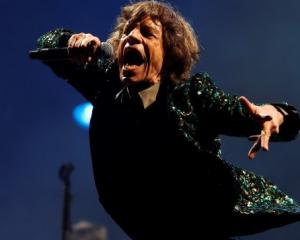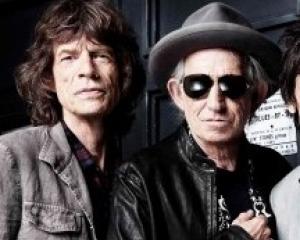Sometimes it is tough to differentiate between legend and fact when looking at the history of The Rolling Stones but most fans agree the band's chapter in the history of rock 'n' roll began with their first gig on July 12, 1962 at London's Marquee Club.
On that night at the legendary music venue, Mick Jagger, Keith Richards, Dick Taylor, Ian Stewart and Brian Jones played for the first time as a group called The Rollin' Stones.
Five decades later and the members of one of the music industry's most famous bands have suffered the ravages of time and look a lot more grizzled in appearance, but there is still enough energy for talk of tours and new albums not to seem out of place.
The band has its origins in the 1950s when Richards and Jagger were childhood friends and schoolmates until their families moved apart. However, the catalyst for the band's creation was when the pair became friends again on October 17, 1961 after meeting at Dartford train station.
Jagger was on his way to the London School of Economics where he was studying while Richards was on his way to Sidcup Art College, carrying his electric guitar.
The encounter led to Richards joining the group Jagger fronted called Little Boy Blue and the Blue Boys. This group broke up and The Rolling Stones were formed in 1962 when the pair Brian Jones and Ian Stewart.
Jones came up with the name of the band during a phone call to Jazz News, calling the group "Rollin' Stone" after a Muddy Waters song.
When the band played their first gig at the Marquee Club, they were billed as "The Rollin' Stones" with Jagger (vocals), Richards (guitar), Jones (guitar), Stewart (piano) and Dick Taylor (bass).
But uncertainty reigns, with mentions of Mick Avory and Tony Chapman having been present and no record of what the band's set list was that night.
According to the magazine Rolling Stone, there are very few known facts about what turned out to be a historic event for the future of rock 'n' roll.
What is known is that when Andrew Loog Oldham became the band's manager he changed the spelling of the band to "The Rolling Stones".
Drummer Charlie Watts quickly joined the band after being convinced that it was the right thing to do instead of working as a designer, and what followed were years of success, marked by highs and lows, personal misfortunes and triumphs.
Jagger, Richards and Watts are still in the band 50 years later although there have been a number of personnel changes in that period.
The band experienced its most tragic moment in the summer of 1969 when guitarist Brian Jones was found dead in a swimming pool with alcohol and drugs in his system.
Jones had been let go from the band just days earlier while the fourth Stone - Ron Wood - only joined the group in 1975.
In the beginning the Stones may have been seen as the voice of their generation but while they developed a reputation as anti-establishment and heroes of Blues and rock 'n' roll, that doesn't quite match the reality.
For example, Jagger never took part in political demonstrations and his middle-class English accent is still noticeable to this day.
The Stones were constructed as bad boys of rock with edgy music, contrasting perfectly with The Beatles. Their music has never really gone out of fashion and 50 years on, nearly everyone can name at least one Rolling Stones song, if not more.




